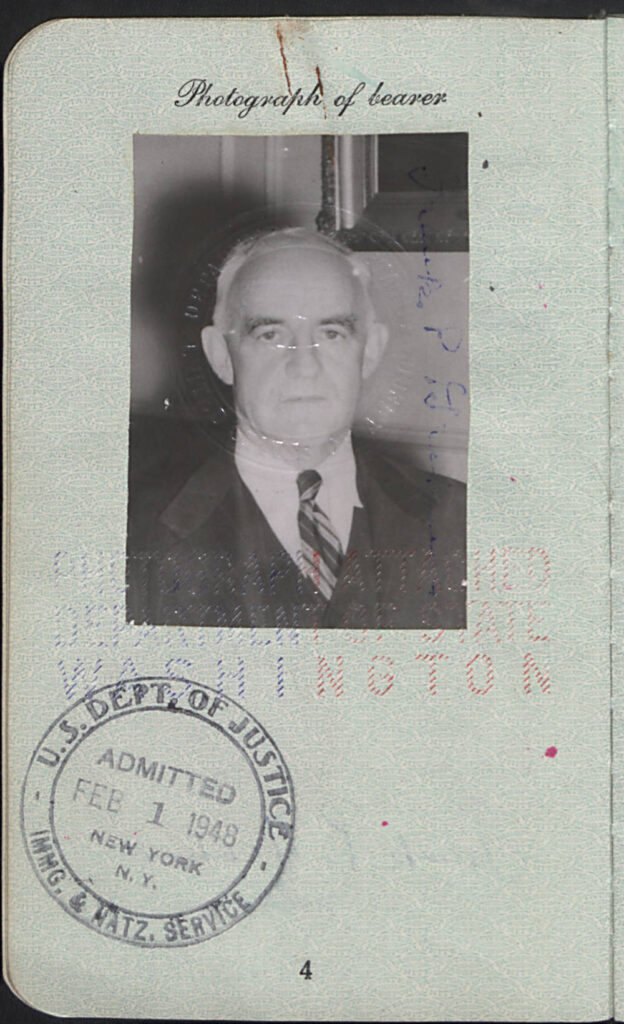Frank Porter Graham: From UNC to the World
This page is the first of nine in a virtual exhibition on Frank Porter Graham’s role in negotiations for the recognition of Indonesian independence. See the homepage for the exhibition here. See the next page here.
Frank Porter Graham (1886-1972) was a two-time alumnus of Carolina (undergraduate 1909; law school 1913), a professor of history, and then president of the University of North Carolina 1930-1949. Known fondly around campus as “Dr. Frank,” he was a popular teacher and an influential voice in North Carolina.

After receiving a graduate degree from Columbia, Dr. Frank returned to Chapel Hill to teach in the History department starting in 1915. After taking two years out to serve in the US Army during the First World War (from 1917-1919), he returned to campus and grew in popularity and stature, including becoming Dean of Students and later being appointed Professor of History in 1927—despite not holding a doctorate.
In 1930, Dr. Frank reluctantly gave up his classroom teaching to become president of UNC. (At that time, UNC was just the Chapel Hill campus; the system consolidation only began in 1932 by uniting what are today UNC-Greensboro, NC State, and UNC-Chapel Hill. Dr. Frank was simultaneously president of UNC-Chapel Hill and the system from 1932 to 1949.)
While serving as a university administrator, Dr. Frank was also pulled into national policy issues—especially those touching on questions of labor, civil rights, and the American South. This included appointment by President Franklin Delano Roosevelt to the commission that proposed the idea of Social Security; service on the National War Labor Board during World War II; and appointment by President Harry Truman to the President’s Committee on Civil Rights.
Throughout all this, Dr. Frank continued to derive inspiration from his experiences at UNC and in World War I. He was committed to the avoidance of war whenever possible and to upholding human dignity in all circumstances. His experience as a labor mediator and as a proponent of civil rights for all races were important for his later work as a member of the UN Committee of Good Offices for Indonesia.
Further reading:
The finding guide for Dr. Frank’s papers at the Wilson Library Special Collections has great information about his life and career. Many of the boxes have been completely digitized, so you can read the primary sources for his biography from anywhere in the world.
Many biographers have already written about Dr. Frank, including most recently William A. Link’s Frank Porter Graham: Southern Liberal, Citizen of the World. Earlier books include Warren Ashby’s Frank Porter Graham, a Southern Liberal (1980) and Julian M. Pleasants’s Frank Porter Graham and the 1950 Senate Race in North Carolina (2011). There was also a biographical documentary: John. B. Wilson, Jr., and Martin Clark’s Dr. Frank: The Life and Times of Frank Porter Graham (1994).
